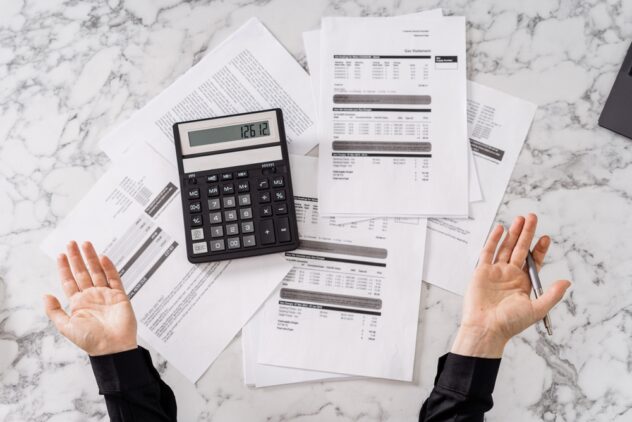10 Practical Tips for Lowering Your Business Utility Bills
In the ever-evolving world of business, keeping an eye on your bottom line is a constant priority. One area where savings can be substantial is in business utility bills. From electricity to water and everything in between, managing your utility expenses efficiently can free up resources for growth, innovation, and enhancing your business operations.

In this must-have money-saving guide, you’ll discover ten practical tips tailored for UK businesses to help you lower your business utility bills without compromising on comfort or productivity.
-
Conduct An Energy Audit
Before embarking on your utility-saving journey, it’s essential to have a clear understanding of where your energy is being used. Engage a professional to conduct an energy audit of your premises. This audit will identify areas where energy is being wasted and provide recommendations for improvements. Armed with this knowledge, you can implement targeted strategies to cut down on energy consumption.
-
Embrace LED Lighting
Traditional incandescent bulbs might have a cosy charm, but they’re also energy hogs. Swap out these energy-sucking relics for energy-efficient LED bulbs. LED lighting uses significantly less energy and lasts longer, resulting in reduced maintenance and replacement costs. Not to mention, the modern designs of LED lights can enhance the aesthetic appeal of your workspace.
-
Unplug And Switch Off
“Vampire” energy consumption occurs when devices and appliances continue to draw power even when not in use. Combat this energy drain by encouraging employees to unplug chargers, turn off lights, and shut down computers at the end of the day. Consider using power strips for clusters of devices, making it easy to switch off multiple items with a single button.
-
Embrace Smart Thermostats
Heating and cooling can account for a significant portion of your energy expenses. Enter smart thermostats, a modern marvel of energy efficiency. These devices learn your heating and cooling patterns and adjust accordingly, reducing energy consumption without compromising comfort. Many models can be controlled remotely, allowing you to tweak settings even when you’re away.
-
Optimise Natural Light
Where possible, maximise the use of natural light within your workspace. Position workstations near windows and avoid blocking out sunlight with heavy curtains or blinds. Not only does natural light create a pleasant and productive environment, but it also reduces the need for artificial lighting during daylight hours.
-
Monitor And Analyse Usage
Invest in energy monitoring systems that track your energy consumption in real time. These systems provide insights into when and where energy is being used most. Armed with this data, you can identify patterns, detect anomalies, and implement energy-saving measures where they’ll have the most impact.
-
Upgrade To Energy-Efficient Appliances
If your business relies on appliances and equipment, consider upgrading to energy-efficient models. From refrigerators to computers, energy-efficient options consume less power and are often designed to perform optimally while using fewer resources. Look for appliances with the ENERGY STAR label for added confidence in their efficiency.
-
Time Your Energy Consumption
Take advantage of off-peak energy hours to carry out energy-intensive tasks. In the UK, energy costs tend to be lower during non-peak hours, which are typically during the night. Schedule tasks like heavy printing, data backups, and equipment maintenance to coincide with these times to benefit from lower rates.
-
Evaluate Supplier Contracts
Your utility providers play a crucial role in your energy expenses. Periodically review your contracts with suppliers to ensure you’re getting the best rates and terms available. If you’re unsatisfied with your current provider, consider exploring alternatives in the market. Competitive rates and favourable terms can result in substantial savings over the long term.
To help you find the best rates for your business, you can take advantage of the helpful services of The Business Water Shop. For instance, if you want to switch business gas suppliers, you can compare and contrast to find the most competitive rates and they’ll even make the switch-over for you.
-
Educate And Involve Employees
A culture of energy consciousness begins with your employees. Educate your team about the importance of energy conservation and involve them in brainstorming energy-saving ideas. Consider implementing an incentive program where employees are rewarded for suggesting and adopting energy-saving practices.
-
Invest In Renewable Energy
As the world shifts towards sustainability, renewable energy sources are becoming more accessible and affordable. Consider installing solar panels or wind turbines on your business premises. While the upfront costs may be significant, the long-term savings and positive environmental impact make it a worthwhile investment.
-
Implement Water-Saving Measures
While often overlooked, water consumption can also contribute to your utility bills. Invest in water-saving fixtures and technologies, such as low-flow toilets and sensor faucets. Educate your team about responsible water usage, fixing leaks promptly, and reporting any water-related issues. Small adjustments can lead to significant water and cost savings over time.
Final Thoughts
Reducing utility bills for your business in the UK is not a distant dream; it’s an achievable reality. By implementing these practical tips, you’re not only taking steps toward financial savings but also embracing a more sustainable and responsible approach to energy consumption.
From harnessing the power of natural light to investing in modern technologies, each strategy contributes to a comprehensive plan for lower utility costs.
As you adopt these measures, you’re not just benefiting your business; you’re also playing a role in creating a greener and more energy-efficient landscape for the UK business community and the world at large.













Leave A Comment